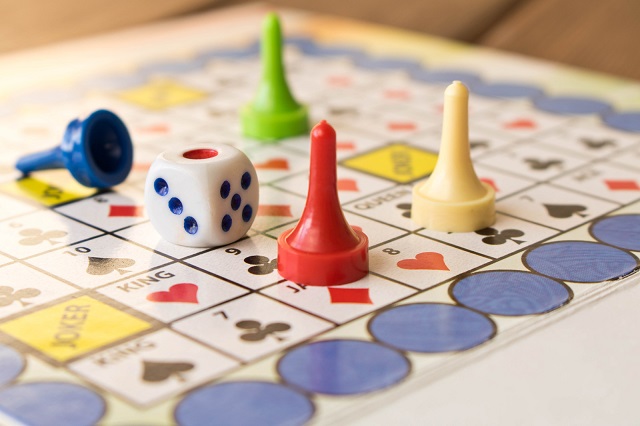
Board games are a great way to have fun with friends and family, but with so many different types it can be difficult to know which game is the best fit. Board games for beginners are relatively easy to learn and allow new players to quickly join the game. From classic games like Monopoly and Clue, to modern favorites such as The Settlers of Catan, Ticket to Ride, or Pandemic; there are board games for every beginner.
When selecting board games for beginners, look for games that contain simple rules that are easy to learn within a few minutes. Complex rules with pages of instructions will often scare away new players before they even start playing. Additionally, avoid long waiting times between turns – it’s much more fun when everyone has equal chances at taking their turn and advancing the game forward.
Education-based board games, where players have limited time available for decision making, should also be avoided. Beginners need time to think through their choices and ask questions if needed – ultimately leading them on their journey from gaming novice to expert in no time.
Other key features of board games for beginners include cooperative gaming play (where all players work together against the game), an intuitive theme and visual appeal (capturing the imagination of those playing). Simple player abilities can make a big difference too – such as role selection or character building; this allows each player become acquainted with their characters abilities while learning about the game’s objectives simultaneously.
The types of resources used in beginner board games vary from hand management (picking cards from various piles) dice rolling (used in luck-based style strategy) or area control elements – this means one may pay attention not only on what cards they’re picking but would also require players strategizing how they place certain pieces throughout the map/board.
Ultimately, finding engaging board games catered towards different levels of experience is possible by following these guidelines – giving you plenty of options when introducing your friends and family into this wonderful world of social gaming.
Types of Board Games
Board games are a great way to enjoy time together with friends or family. There are many different types of board games out there for all levels of players. From simple dice and tile based games, to more complex strategic board games, there is something for everyone.
For beginners, it is important to pick the right game for your skill level so that everyone can be competitive and have fun. Dice-based games usually involve rolling dice in order to move pieces around a board, with the goal of getting from a start point to an end point first.
These kinds of games can often be easily understood without having any previous experience playing board games. Examples include classic favourites such as Parcheesi and Sorry., as well as newer versions like Tiki Topples and Catan Junior.
Card-based games are more challenging than their dice-based counterparts due to the element of strategy involved in these sorts of games; players must learn how to use cards they’ve been dealt to build combinations that will help them become victorious over their opponents.
An example of this type of game would be Uno or Phase 10, where each player has seven cards in their hand that were randomly selected at the start of the game and must create combinations out of them in order to win points/the round/the game.
It is also important for players engaging in card-based games to remember shared strategies passed down by experienced players, as these will often come in handy during gameplay later on.
Strategic board games require a much higher level of skill and understanding compared to card-based and dice-based ones; not only must each player use strategies that help them accomplish certain goals (e.g., collecting resources), but they must also constantly adjust said strategies based on what other players are doing as well.
Examples would include Settlers of Catan or Carcassonne, which involve intricate landscapes populated by characters with varying objectives – all requiring careful thinking and planning in order for one player to enter a winners’ circle at the end.
Benefits of Board Games
Board games have been around for centuries, providing hours of entertainment and enjoyment since the dawn of modern civilization. They are great for people of all ages, from young children to adults. Board games can provide mental stimulation, social interaction, family bonding, skills development, and a great variety of other benefits.
Mental Stimulation
Playing board games is an excellent way to stimulate your brain. Not only does it help to increase concentration and cognitive skill levels but it also refreshes problem solving skills too. The combination of carefully crafted rules and logic-based play combined with the element of chance ensures there are countless variables to think about during each move. This constant mental stimulation helps to keep the user focused and motivated throughout play.
Social Interaction
Apart from its role as a way to pass time when bored or alone, board games can also provide users with important social interactions essential later in life. Players often take turns during gameplay which allows them conversational space for discussing strategies or simply talking about their lives in general; constantly practicing essential skills like communication and collaboration that can benefit everyone in group settings such as school activities or work tasks in the future.
Family Bonding
Board games typically require multiple players which make them perfect for families who want more meaningful forms of leisure time instead of watching TV or playing individual video games. Playing together always brings family closer together thanks to increased communication between parents and their offspring on top of opportunity for conversations covering any topic, be it schoolwork or teenage issues like upcoming future decisions and friendships problems amongst other things.
Understanding each other better through board game set ups has been seen to pave roads towards much healthier relationships that last longer in many households today.
Strategies for Success
When it comes to board games, there really is something for everyone. Whether you’re a casual player looking for something to pass the time or an experienced player trying to hone their skills, board games offer hours of entertainment and learning opportunities. If you’re new to the world of board games, here are some tips to help get you started.
Choose Your Game
The key to a successful game night is choosing the right game that appeals to everyone playing. Make sure you look at who will be playing and choose a game that matches their preferences and skill level.
Do some research online or with your local librarian to find out what games can be played with people in a certain age range or how many players a particular game needs. Similarly, if certain family members tend towards more complex games, choose one that contains more strategy while ensuring those new to the game have the rules explained well.
Stay Focused
One of the best ways for beginners to enjoy their board games experience is by staying focused during gameplay. Avoid getting easily distracted from conversations as this could lead you making an unintentional move that may not benefit your overall strategy.
Additionally, even when introducing a game it is important take note of each rule as they come up: besides avoiding mistakes it also helps remember them better in case someone asks about them later on. Furthermore, keeping distractions at bay also helps build anticipation as each turn brings closer a potential victory.
Play Multiple Times
Above all else, be sure not to give up after your first play through as practice makes perfect. Don’t be afraid of losing – instead use each round as an opportunity for practice, so that when it comes down to your next attempt at winning you know exactly what moves and strategies will work best for success.
Even if you don’t quite understand all the rules yet or are still rusty on some tactics, practice make perfect so keep trying until reach perfection. Moreover, by playing multiple times one has the chance of discovering any hidden strategies or specific combo’s that could propel them further ahead and nearer winning glory.
Assessing a Board Game
For beginners who are just starting out in the World of Board Games, it can be hard to determine which ones are best to begin with. Knowing a few guidelines on how to assess a board game can help narrow down the choices and provide players with an enjoyable experience.
One important criteria for assessing board games is determining the type that is most suitable for you and your group’s skill level. There are many different varieties to choose from; some popular ones include worker placement, card games, abstract strategy, euro-style, dice and tile-based wargames just to name a few.
Certain games may contain complex rules or have high-level strategies that require more experienced players; understanding what kind of game you’re getting into is key to finding one that suits your needs as a beginner.
It also helps to get familiar with ratings and reviews of various board games. While this doesn’t guarantee success, listening to the opinion of others can provide helpful feedback on mechanics, aesthetics or any warnings about length or difficulty levels when playing certain games.
You can find these ratings on websites such as BoardGameGeek or Reddit’s Board Game Subreddit page where people discuss pretty much every topic related to board gaming and post their thoughts and reviews on them.
The opening and closing statements in rulebooks are essential for understanding how the game works: openings often provide an overview of the concept behind a game while closings address any clear up questions regarding specific rulesets that players may have issues with during gameplay.
If expansions exist for certain models, keep potential compatibility in mind: make sure the expansion pack itself is compatible with your version of the model or core set if considering additional expansions later down the line – otherwise something might get damaged or worn out easily due to incompatibility.
Overall, understanding these aspects related to assessment when selecting boardgames will aid beginners in finding good titles that they can enjoy; look at different types on offer before making an informed decision based on those criteria for a fantastic gaming experience.
Getting Started
Board games are becoming increasingly popular for all types of players. With so many options available, finding what’s best for a beginner can be overwhelming. Here are some criteria to keep in mind when shopping for board games as a beginning player:
- Look for games that have simple rules and an intuitive set up.
- Consider the age recommendation of the game. If it’s too advanced for your current level, you won’t have as much fun discovering strategies with each play.
- Learn how long it takes to complete the game; shorter length games give more room to discover different strategies than longer ones.
In addition to these criteria, there is also an essential set of pieces needed for almost any board game: boards, playing pieces, and dice. boards may come printed on paper or cardboard while playing pieces might be metal figurines or cardboard tokens. Dice are usually made from polymers such as plastic or resin.
All of these materials should have a durable finish that stands up well to wear and tear from multiple plays. Besides extra pieces in case someone losses one or damage occurs, look into storage options that will minimize wear as each component is used throughout its lifetime. Not only do these keep wear and tear down but they also make setup easier each time you want to play.
Fortunately there’s no shortage of manufacturers who provide top quality products with even better customer care service so take advantage of this resource when making purchases by looking at reviews from people who have already stayed with piece product or bought reliable sets which high satisfaction ratings.
Popular Board Games for Beginners
1) Settlers of Catan: Settlers of Catan is a popular strategy game with simple rules that make it easily accessible for beginners. The goal in this game is to build settlements, cities, and roads by gathering resources on the game board. Players gain points by trading and building, and the player with the most points at the end of the game wins. This is a great game for learning strategy skills, as well as learning how to plan ahead.
2) Monopoly: Monopoly is a classic board game that’s been around for over 80 years. Players compete to purchase properties, build apartments/hotels on them, collect rent from other players, and eventually amass enough wealth to win. Monopoly is an excellent way to teach budgeting skills and also patience, as you must wait in order for other players to make their moves before you can go again.
3) Scrabble: Scrabble allows players to use letter tiles to form crossword-style words on the game board. The aim of the game is to score points by creating high scoring words that intersect other words already placed down by other players. Scrabble is not only great for beginners because it can be played quickly and still provide very engaging gameplay but it also helps develop vocabulary skills too.
4) Carcassonne: Carcassonne combines elements of both auctions and area control games into one package. Players take turns placing land tiles onto the board in order create regions (farms, towns, cities). Points are scored based upon where they place their pieces and how effectively they’re able to deploy their limited set of tokens (knights, followers etc.) This makes Carcassonne perfect for beginners as it teaches strategies such as device placement while still providing compelling gameplay experiences.
- Settlers of Catan
- Monopoly
- Scrabble
- Carcassone
Settlers of Catan is an easy-to-learn strategy game where you need adventureously explore islands while collecting resources instead of playing dice like traditional board games like Monopoly or Risk. It requires planning ahead to figure out which resources are worth trading or collecting in order reach your victory point threshold first. Meanwhile Monopoly teaches lessons about budgeting since you purchase properties and then try increase their value with upgrades or rent payments from opponents.
Scrabble builds vocabulary as each player uses letter tiles try form crossword-style words on the board. Lastly Carcassone involves laying down tiles create regions which enables players practice presence of mind and strategies such token placement while earning points competing against one another become victorious.
Closing
Board games have gained in popularity recently as more people are staying at home and actively looking for social outlets that don’t involve a screen. Board games provide fun for beginners of all skill levels, making them an awesome hobby to pick up if you’re new to board gaming. One of the great things about board games is that many can be played by both adults and children together.
This makes it easy for families or groups of friends to spend quality time together while engaging in healthy competition. These types of social interactions can help build relationships, reduce stress, and foster good communication between everyone playing.
In addition to being socially beneficial, board games also offer a range of other benefits such as helping promote problem-solving skills. This is because most board games require some degree of strategy and thoughtfulness; they must be approached with a tactical mindset in order to win.
This kind of puzzle solving challenge helps keep the mind active and engaged while having fun. Moreover, when careful thought is put into each move it gives players a chance to practice tactical decision-making which can increase cognitive ability over time.
Finally, one element that draws many people to board games is the accessibility factor; multiple players can participate without needing individual screens or devices. This means anyone from family members from different age groups, roommates, coworkers, etc., can join in on the same game without any technological obstacles.
In addition, difficulties levels can vary widely from easy noncompetitive options all the way up to more complex strategic choices so there’s something suitable for everyone regardless of age or previous gaming experience.
Overallboard games are a great introductory hobby for beginners due to their wide varielty of options suitable for all ages and skill levels. Not only that but they also help build relationships and improve problem-solving abilities when approached strategically; making them ideal for people looking for an inclusive pastime with multiple benefits.




